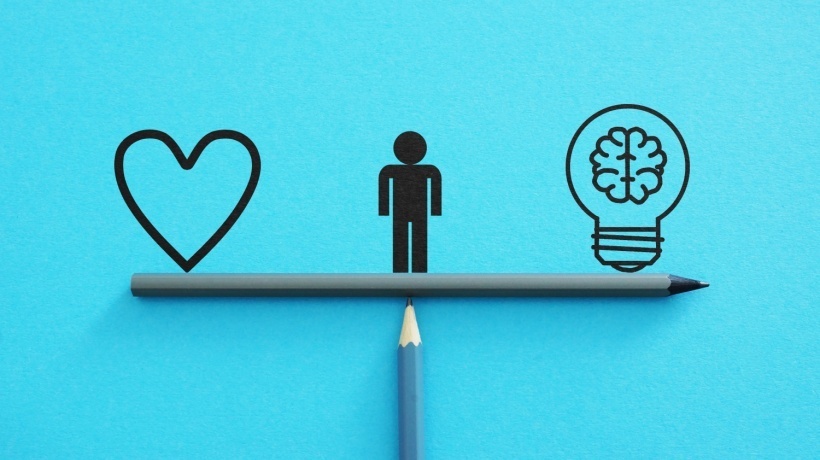The Ins And Outs Of Emotional Intelligence In The Workplace
Imagine how much better a workplace would be if you could not only recognize and manage your emotions but understand those of your peers, too. This is called emotional intelligence—the ability to recognize and understand emotions in general. It's about taking a moment and understanding how your emotions can impact your actions and relationships with others. That's why emotional intelligence in the workplace is essential.
In our work, we have to collaborate with lots of people. Each has a unique personality and way of seeing and doing things. With emotional intelligence, you can easily handle all sorts of stressful situations, such as deadlines and conflicts. You can remain calm when things get tough, communicate effectively with your team, and come up with solutions that work. It's a great skill to have and can make all the difference in your work environment. Let's break emotional intelligence down and get to the bottom of it.
Understanding Emotional Intelligence
To better grasp emotional intelligence, we need to examine what it consists of. First up is self-awareness, which means being in tune with your thoughts, feelings, and reactions. By understanding your strengths, weaknesses, values, and emotions, you can gain a deeper understanding of yourself. Next is self-regulation, which is the ability to calmly manage your emotions, even when they get intense. This allows you to control your impulses and reactions in a way that aligns with your values.
Then we have motivation, which gives you a sense of purpose and passion for what you do. This is especially important at work because it's what drives your success. Empathy is another crucial aspect of emotional intelligence, as it enables you to see things from other people's perspectives and understand their feelings. This helps to build strong relationships. Lastly, there are social skills like communication, negotiation, and conflict resolution, which are essential for navigating social situations with ease. Below, we'll explain why emotional intelligence contributes positively to any workplace, as well as how to effectively practice it.
Benefits Of Emotional Intelligence In The Workplace
Improved Communication
However your team decides to communicate, either through instant messaging, meetings, or emails, this connection is what drives success. Wouldn't it be great, though, if every team member could not only understand what's being said but also pick up on the unsaid? This includes emotions and other subtle cues. And that's exactly what emotional intelligence does: it helps your employees navigate human emotions in their daily interactions, making every exchange with colleagues more meaningful and pleasant. It's as simple as noticing facial expressions, for example, and checking in to see how a colleague is doing.
Better Conflict Resolution
Having emotional intelligence means that you can stay calm even when things get chaotic. Rather than getting caught up in the moment, you can take a step back, evaluate the situation, and respond carefully. Emotional intelligence can also help you prevent conflict from escalating out of control. Just imagine if both you and your coworker had that ability. Instead of arguing and strictly sticking to your own opinions, you would approach the situation with empathy and understanding. You would listen actively, understand each other's viewpoints, and work together to solve the problem in a way that satisfies both parties.
Enhanced Leadership Abilities
Great leaders don't just know how to assign tasks and make tough decisions. They have a special talent for understanding people, inspiring them, and handling rough situations with ease. Emotional intelligence is the key to achieving all of the above. Individuals with emotional intelligence can empathize with others, take into account their concerns, and communicate clearly. They make decisions based on the situation's pros and cons, as well as how it impacts the emotions and needs of others. These assets are a great foundation for leadership skills, and not only can they make an employee stand out, but they can also turn them into a successful leader one day.
Higher Job Satisfaction
Having emotional intelligence can help you understand and manage your emotions better, which means you're less likely to get overwhelmed or burned out by a heavy workload. You'll be able to approach challenges composedly, making your work not only easier but also more fun. Plus, this means you are better at recognizing when a colleague needs support or when things get tense among team members. So, you offer a helping hand when needed, creating a positive and supportive work environment that makes you eager to head to work every day.
Improved Collaboration
When all members of a team have emotional intelligence, they express themselves clearly and minimize the likelihood of misunderstandings. So, instead of exchanging passive-aggressive emails and experiencing tense meetings, team members have open and friendly dialogues and provide each other with constructive feedback that helps everyone grow. The most significant advantage, though, is the development of trust. When team members trust that they can depend on one another to be honest, supportive, and respectful, they take risks, share ideas, and collaborate effectively, which leads to innovation.
How To Apply It
Self-Regulation Strategies
If you're looking to manage your emotions, a great place to start is being aware of them. Keep an eye on how you're feeling throughout the day—maybe you're getting frustrated because a project is taking longer than expected, or you're feeling anxious about an upcoming meeting. Once you've recognized your emotions, give mindfulness a try. Dedicate some time to meditating, practicing some breathing exercises, or even just taking a walk during your lunch break. And if you feel like your emotions are getting the better of you, just take a moment to count to 10. This will give you a chance to pause everything and think before reacting.
Developing Empathy
If you want to show empathy, learn to be a good listener. When someone talks to you, try giving them your undivided attention. Put away any distractions, look them in the eye, and nod to show that you're interested. This will not only make them feel valued, but it will also help you truly understand their perspective. In addition, you can try to see things from their point of view. By imagining how they might be feeling and why, you can gain a deeper understanding of their experience. And let's not forget about nonverbal communication, too. Notice their facial expressions, body language, and tone of voice, as they can indicate how a person feels even if they don't say it.
Motivational Techniques
To motivate yourself, start by setting some meaningful goals. Take a moment to think about what really matters to you and align your goals accordingly. Remember, it's not just about achieving results. Celebrating progress is just as vital. So, break down your big goals into smaller milestones and reward yourself for every achievement. Also, keeping an optimistic attitude can make a big difference. Try to view obstacles as opportunities for growth and learning. Finally, don't forget to take a moment each day to feel thankful for the things you appreciate. Whether it's a colleague who supports you, a project that showcases your skills, or simply a good day at work, acknowledging the positive aspects of your life can help you stay motivated.
Enhancing Social Skills
Developing your social skills can make you more emotionally intelligent. Being socially aware means reading your team's emotions and adjusting your behavior accordingly. For example, if your coworker is stressed about a report or if your boss looks upset in a meeting, you can adjust your approach and be more understanding. You can also try acknowledging the strengths of your teammates, supporting them in group projects, and giving plenty of genuine compliments, thank-yous, or smiles. This will create a company culture of kindness and appreciation that not only boosts morale but also helps you connect with your peers.
Conclusion
Developing emotional intelligence in the workplace is more than just improving your skills. It's a way to make your life more fulfilling. When you can understand and manage your emotions, you're better able to handle life's ups and downs with confidence. Even when work gets stressful, you can remain calm and stay focused on your goals. It's important to remember that growing takes time, and you're going to make some mistakes. But when that happens, learn the lesson and move on. Keeping a positive attitude and an open mind is half the effort when practicing emotional intelligence.


![Emotional Intelligence And Workplace Learning - The What, Why, And How [eBook Launch]](https://cdn.elearningindustry.com/wp-content/uploads/2022/12/Shutterstock_1029532522.jpg)




